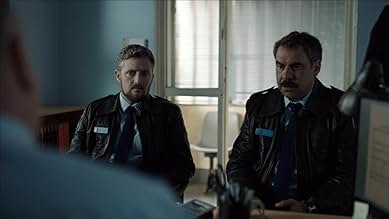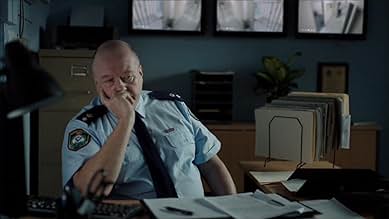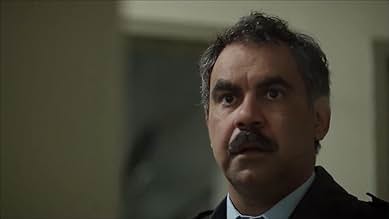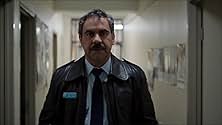The troubled lives of struggling indigenous Australians in the tough, rundown neighborhood of the inner suburb of Redfern in Sydney.The troubled lives of struggling indigenous Australians in the tough, rundown neighborhood of the inner suburb of Redfern in Sydney.The troubled lives of struggling indigenous Australians in the tough, rundown neighborhood of the inner suburb of Redfern in Sydney.
- Awards
- 16 wins & 16 nominations total
Browse episodes
Featured reviews
This series is refreshingly different to all the formulaic cop shows/hospital dramas/sitcoms which dominate the TV landscape. The episodes deal with everyday issues in a realistic fashion; we are privileged to see some of Australia's best actors at work; and indigenous people are portrayed non-stereotypically. Not all the story lines are resolved neatly - just like real life, things sometimes turn out other than we would wish. Each episode is self-contained, but many characters appear in several eps with differing degrees of prominence, so someone who features in one episode as the protagonist may pop up later in a supporting role. If you like intelligent, thoughtful and thought-provoking drama, and you are an open-minded discerning viewer, I think you will find Redfern Now a rewarding experience.
Badlandz didn't know what he was talking about. If he knew it's actually worse because oh yea we need another American to comment on the intricate and complicated societal Australian problems that were brilliantly reflected and acted in the series. I love the dialog, the emotional weight between the silences, the pauses, which is distinctly Australian; while some might prefer a 50 min drama filled with clever non- clichéd witty dialogue with Tom-Cruise-facial-contortion-style of acting, normally people don't act this way and I think it's the show's purpose to honestly and realistically portray the multi-facets of contemporary Aboriginal lives in Australia.
Maybe one has to be Australian to like this series. But not for anyone who has experienced well executed drama. Having ploughed through 6 of the episodes picked from both series 1 and 2 we won't be watching any more. The basic messages are clearly well intentioned but the dialogue is simple and the scenes so repetitive we kept shouting "OK we've got the message".
The characters have little depth and the endings are mostly predictable after about 10 minutes. If this is the kind of drama that wins awards in Australia, then it is no wonder why the rest of the world views that part of the world as lacking culture. (Just as well the Sydney Opera house can counter that.)
The underlying story is generally good but just doesn't justify 50 minute episodes. Now weave several episodes together giving each story maybe 20 minutes air time and there just could be an interesting poignant mini series.
The characters have little depth and the endings are mostly predictable after about 10 minutes. If this is the kind of drama that wins awards in Australia, then it is no wonder why the rest of the world views that part of the world as lacking culture. (Just as well the Sydney Opera house can counter that.)
The underlying story is generally good but just doesn't justify 50 minute episodes. Now weave several episodes together giving each story maybe 20 minutes air time and there just could be an interesting poignant mini series.
Those expecting bushmen, or didgeridoo, will be very disappointed. Those that don't are in for a treat. The show takes place in Redfern, a poorer part of Sydney, where hundreds of years of intermarriage has made for a lighter skin people, who for whatever reason still are blackfellas in a whitefella world. It's a fine balancing act, brought off with skillful portrayals in the series. Don't expect car chase shoot-um-up action.
Excellent acting with story lines that weave between a number of families who come and go throughout the series. This drama series won numerous Australian awards, and had very favourable reviews by the general Australian population.
Excellent acting with story lines that weave between a number of families who come and go throughout the series. This drama series won numerous Australian awards, and had very favourable reviews by the general Australian population.
Just watched this on Netflix. It was a really interesting show. I really love seeing movies or TV shows about different ethnicities living normal lives rather than as stereotypes. Indigenous Australians have always fascinated me. They rarely get seen on TV here in the US and I can't count the number of times I've seen aborigines portrayed as regular people on one hand. What always springs to mind is the David Bowie video "Let's Dance", that featured the young aborigine teens. I'd also seen Rabbit Proof Fence and a few other movies. There were some great episodes and it's a pity the show didn't last longer than twelve episodes.
As an American, my impression of indigenous Aussies has been of the dark-skinned aborigine bushmen tribes and peoples, so I expected to see more of people with a darker skin tone. While I recognize that like African Americans, there are many indigenous Aussies who are also a mix of Europeans and other races, what I see in the series is mostly mixed raced indigenous and island people. So of course my impression is that this cast is chosen for their appealing looks to interest white viewers rather than authenticity or true aboriginal culture. Forgive me for being ignorant but I've seen other Australian movies that featured aborigines who weren't light-skinned with European features yet this series has maybe one episode with a real blackfella with dark skin and his role is relegated to 10-15 seconds of screen time and four lines. I'm not saying the actors here shouldn't be included or recognized as great indigenous artists, quite the contrary. Many of the performances there are top notch. Deborah Mailman, Wayne Blair, Lisa Flanagan and Rarriwuy Hick especially stand out for great acting and beauty. I just would have preferred that the casting had been more inclusive of the full diaspora of the culture. The few other instances of dark- skinned aborigines in the series amount to background figures cast as homeless people or drunks with no dialogue.
As an American, my impression of indigenous Aussies has been of the dark-skinned aborigine bushmen tribes and peoples, so I expected to see more of people with a darker skin tone. While I recognize that like African Americans, there are many indigenous Aussies who are also a mix of Europeans and other races, what I see in the series is mostly mixed raced indigenous and island people. So of course my impression is that this cast is chosen for their appealing looks to interest white viewers rather than authenticity or true aboriginal culture. Forgive me for being ignorant but I've seen other Australian movies that featured aborigines who weren't light-skinned with European features yet this series has maybe one episode with a real blackfella with dark skin and his role is relegated to 10-15 seconds of screen time and four lines. I'm not saying the actors here shouldn't be included or recognized as great indigenous artists, quite the contrary. Many of the performances there are top notch. Deborah Mailman, Wayne Blair, Lisa Flanagan and Rarriwuy Hick especially stand out for great acting and beauty. I just would have preferred that the casting had been more inclusive of the full diaspora of the culture. The few other instances of dark- skinned aborigines in the series amount to background figures cast as homeless people or drunks with no dialogue.
Did you know
- TriviaDeborah Mailman was nominated for a 2015 Australian Academy of Cinema and Television Arts Award in the Best Lead Actress in a Television Drama category for her role as Lorraine in Redfern Now (2012).
- ConnectionsReferenced in The Making of Emu Runner (2018)
- How many seasons does Redfern Now have?Powered by Alexa
Details
Contribute to this page
Suggest an edit or add missing content




























